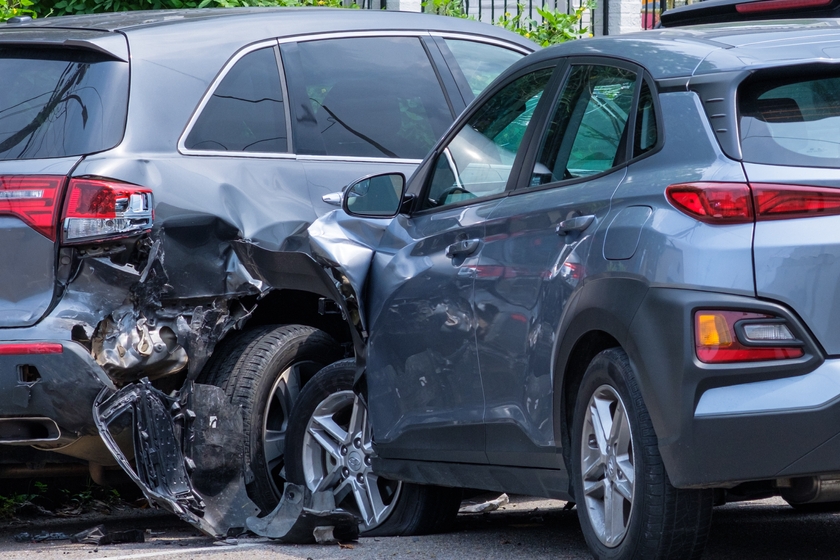
Being involved in an auto accident in New Jersey can be a traumatic experience, and determining who is at fault is critical when it comes to receiving compensation for your injuries and damages. New Jersey follows specific fault determination rules that can affect how much compensation you may be eligible to recover. Understanding these rules is crucial for protecting your rights as an injured driver.
This blog will walk you through how fault is determined in auto accidents and how to navigate the process with the help of an experienced auto accident lawyer.
Understanding Auto Insurance in New Jersey
In New Jersey, the insurance system requires that your own policy’s personal injury protection (PIP) be responsible for covering medical bills if you're hurt in a car accident, no matter who is at fault. This coverage, however, is limited to medical costs and doesn't extend to non-economic losses, like pain and suffering.
If the injuries you sustain are severe—such as permanent damage, disfigurement, or noticeable scarring—you may have the option to file a lawsuit against the driver responsible for the crash to seek additional compensation. It's essential to grasp how fault is determined in these cases and the impact it can have on your claim.
Determining Fault and Compensation in NJ Auto Accidents
In New Jersey, fault in car accidents can be shared between multiple parties, and your ability to recover damages depends on your level of responsibility. If you're deemed partially at fault, the amount you can claim will be reduced in proportion to your role in causing the accident. For instance, being 20% responsible would lower your compensation by 20%.
However, if you're found to bear the majority of the blame—over half—you won’t be able to pursue damages from the other driver. This makes it crucial to have a skilled attorney who can help reduce your level of liability and maximize the compensation you’re pursuing.
How Fault is Determined in New Jersey
Several factors are considered when determining fault in a New Jersey auto accident case. These factors include:
- Police Reports: A police report can provide critical information about how the accident occurred and who was cited for traffic violations. While not always conclusive, the police report is often a key piece of evidence in fault determination.
- Witness Statements: Independent witnesses who saw the accident can provide unbiased accounts of what happened, helping to clarify the circumstances surrounding the accident.
- Traffic Laws: Violation of New Jersey traffic laws, such as speeding, running a red light, or failing to yield, can be clear indicators of fault. Drivers who break these laws are more likely to be found at fault for causing an accident.
- Accident Reconstruction: In more complex cases, accident reconstruction experts may be brought in to analyze the scene and vehicle damage to determine how the accident occurred. These experts can provide testimony that supports your version of events.
- Video Footage: If the accident occurred in an area with surveillance cameras or if a dashcam captured the incident, video footage can provide clear evidence of how the accident unfolded and who was at fault.
Common Types of Fault in New Jersey Auto Accidents
Several common behaviors are typically associated with fault in auto accidents in New Jersey. Understanding these can help you recognize when another driver may be liable for your injuries:
- Distracted Driving: Distracted driving is one of the leading causes of auto accidents. Texting, eating, adjusting the radio, or using a GPS while driving can lead to serious accidents. If the other driver was distracted at the time of the accident, they are likely to be found at fault.
- Speeding: Exceeding the speed limit or driving too fast for road conditions is another common cause of accidents. Drivers who speed have less time to react and are more likely to cause serious accidents, particularly in poor weather conditions.
- Drunk or Impaired Driving: Driving under the influence of alcohol or drugs is illegal and highly dangerous. If the other driver was found to be intoxicated, this is strong evidence of fault and can result in additional penalties for the at-fault driver.
- Failing to Obey Traffic Signals: Running red lights, stop signs, or failing to yield are clear violations of New Jersey traffic laws. When a driver disobeys traffic signals, they are typically at fault for any resulting accident.
Steps to Take After an Auto Accident to Protect Your Rights
After being involved in an auto accident in New Jersey, there are steps you can take to protect your legal rights and ensure fault is properly determined:
- Call the Police: Always call the police after an accident, even if the damage seems minor. Not only is it required in most cases, but a police report will document the details of the accident. This can be valuable evidence when determining fault.
- Collect Evidence: If you are physically able, take photos of the accident scene, including damage to all vehicles, road conditions, and any visible injuries. Collect contact information for witnesses and exchange insurance details with the other driver.
- Seek Medical Attention: Even if you feel fine right after the accident, you must seek medical attention immediately. Serious injuries like concussions or spinal damage can be hidden at first, but delaying treatment could make them worse. Plus, documenting every step of your medical care is vital to building a strong personal injury claim.
- Contact an Auto Accident Lawyer: Working with an experienced auto accident lawyer in New Jersey can help you navigate the complex process of determining fault and pursuing compensation. A lawyer will guide you through gathering evidence, negotiating with insurance companies, and, if necessary, representing you in court.
What to Expect When Working with an Auto Accident Lawyer
A skilled auto accident lawyer will thoroughly investigate the accident and work to prove that the other driver was at fault. They will collect evidence such as police reports, witness statements, and video footage to build a strong case.
Your lawyer will also handle negotiations with the insurance companies on your behalf, ensuring that you are not pressured into accepting a low settlement. If a fair settlement cannot be reached, your lawyer will represent you in court to fight for the compensation you’re seeking.
How Fault Affects Compensation in New Jersey Auto Accidents
Fault plays a significant role in determining the amount of compensation you may receive. If the other driver is found entirely at fault, you may be able to recover full compensation for your medical bills, lost wages, pain and suffering, and other damages.
However, if you are partially at fault, your compensation will be reduced based on your percentage of responsibility. This is why it’s important to work with a lawyer who can present a compelling case to minimize your fault and maximize your compensation.
Contact Personal Injury Lawyers at Corradino & Papa for Experienced Legal Representation in New Jersey
If you’ve been injured in a motor vehicle accident in New Jersey, determining fault is a crucial step in securing the compensation you need to recover. The experienced team at Corradino & Papa is here to help you navigate the process and protect your rights.
For immediate assistance, call us at 973-381-1706 or schedule a consultation through our online contact form. Let us fight for the compensation you seek, so you can focus on your recovery.

